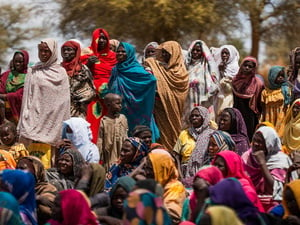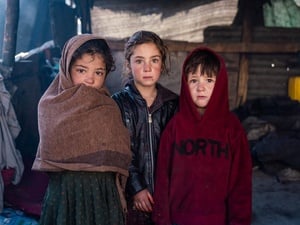Number of Afghan refugees in no-man's land rises to 7,000
Number of Afghan refugees in no-man's land rises to 7,000
Returnees in the ethnically-mixed village of Bukue in Bosnia.
CHAMAN, Pakistan, Jan. 11 (UNHCR) - The number of Afghan refugees in the no-man's land near Pakistan's Chaman border crossing has risen to more than 7,000, but local authorities are refusing them entry into UNHCR camps in the area.
Most of the new refugees fled from makeshift camps and villages around the Afghan border town of Spin Boldak and the southern region of Kandahar, complaining about the lack of food and insecure conditions in the area, a spokesman for the agency said Friday.
"Pakistani authorities are not allowing them into the Killi Faizo site, and refuse to allow UNHCR to assist the new arrivals at our camps in the area," spokesman Kris Janowski told a news briefing in Geneva, referring to the holding camp run by UNHCR near Chaman.
He said that the agency was nevertheless distributing water and high protein biscuits provided by the World Food Programme to the new refugees.
"We are appealing to Pakistan to allow them into our camps in the border region where they can be properly assisted," Janowski said, adding that two refugee children at the no-man's land died this week.
The estimated 4,000 new refugees who arrived this week joined some 3,000 others who have been in the area since New Year's Day. While Pakistan has officially closed its border with Afghanistan, the refugee agency estimated that some 200,000 Afghans have crossed the frontier into Pakistan since September.
This week UNHCR transferred the 100,000th refugee into eight newly established camps along the border, but another 100,000 are either living with relatives already in Pakistan or have melted into the fabric of the major cities.








